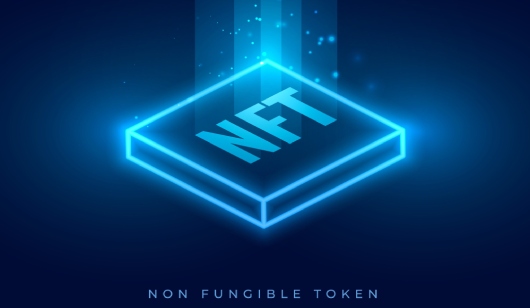-
In the ever-evolving world of blockchain and cryptocurrencies, non-fungible tokens (NFTs) have taken the digital art and collectibles market by storm. While NFTs are primarily seen as a form of digital ownership and investment, a new trend is emerging - NFT lending. This innovative concept has garnered increasing attention and is reshaping the way we think about NFTs and their potential. In this blog, explore how NFT lending, an emerging concept powered by NFT development services, is empowering the DeFi space.
What Are NFTs and How Do They Work?
Before diving into NFT lending, let's revisit what NFTs are and how they function. NFTs are unique digital assets that represent ownership or proof of authenticity of a particular item, whether it's digital art, virtual real estate, in-game items, or collectibles. NFTs are built on blockchain technology, which ensures their scarcity and immutability. Each NFT is associated with a specific smart contract, which records its ownership and provenance. Also, Check | NFT-Based Loyalty Programs: Revamping Customer Engagement
The Rise of NFT Lending
The concept has emerged as a natural progression in the NFT space, driven by several factors:
Illiquid Assets
While NFTs can be valuable, they are often illiquid. Owners may want to access liquidity without selling their prized digital possessions. NFT lending offers a solution by allowing owners to borrow against their NFTs.
Bridging Financial Gaps
NFT lending can be beneficial for artists and creators who want to monetize their NFT collections or individuals who need short-term financing.
Yield Generation
Lenders can earn interest by lending their NFTs, making it an attractive option for those wishing to see their NFT investments grow. Also, Explore | How AI Transforms the NFT Marketplace Space
How NFT Lending Works
NFT lending platforms facilitate the borrowing and lending of NFTs. Here's how it typically works:
Selection of NFTs
Owners choose which NFTs they want to lend. These can include digital art, virtual property, or any other NFTs of value.
Also, Read | Trump Holds Dinner for Top NFT Buyers at Mar-a-Lago
Collateral and Terms
Borrowers offer collateral, usually in the form of another NFT or cryptocurrency, and agree to the terms of the loan, including interest rates and repayment periods.
Smart Contracts
Smart contract development governs the lending process, ensuring that NFT ownership is transferred to the lender temporarily, and the borrower receives the agreed-upon collateral.
Repayment
Once the loan is repaid according to the terms, the NFT is returned to the borrower, and the lender receives the principal amount along with any interest. You may also like | NFT Domains | Revolutionizing Ownership in the Digital Landscape
Benefits
NFT lending brings forth several advantages:
Liquidity
Owners can access the value of their NFTs without selling them.
Diversification
Borrowers can use borrowed NFTs to create new collections or art pieces, potentially increasing their NFT portfolio.
Income Generation
Lenders can earn passive income by lending out their NFTs.
Risk Mitigation
Borrowers can mitigate the risk of a sudden drop in NFT value by borrowing against their assets. Also, Read | NFT Ticketing Marketplace | Unlocking the Future of Ticketing
Challenges and Risks
While NFT lending has tremendous potential, it's essential to be aware of the challenges and risks involved:
Volatility
NFT prices can be highly volatile, impacting the value of the collateral.
Regulatory Uncertainty
The regulatory environment for NFT lending is still evolving, making it essential to stay compliant with local laws.
Counterparty Risk
As with any lending activity, there's a risk that borrowers may not repay their loans.
Smart Contract Vulnerabilities
As the whole lending relies on smart contracts, vulnerabilities can be exploited, leading to potential losses. In this guide, find out how to avoid smart contract vulnerabilities.
Conclusion
NFT lending is an exciting development in the NFT space, offering a way to unlock the value of digital assets. As the technology matures and becomes more mainstream, it has the potential to revolutionize the NFT market by making these assets more accessible and functional for a broader audience. Whether you're an NFT owner looking to access liquidity or an investor seeking a new way to earn passive income, NFT lending is a concept worth watching. However, it's crucial to approach an experienced NFT development company with a clear understanding of the risks and opportunities and to stay updated on the evolving regulatory landscape. The world of blockchain and non-fungible tokens is ever-changing, and lending is yet another exciting chapter in this ongoing digital revolution.

Our Offices
INDIA
Emaar Digital Greens, Sector 61,
Gurugram, Haryana
122011.
Welldone Tech Park,
Sector 48, Sohna road,
Gurugram, Haryana
122018.















